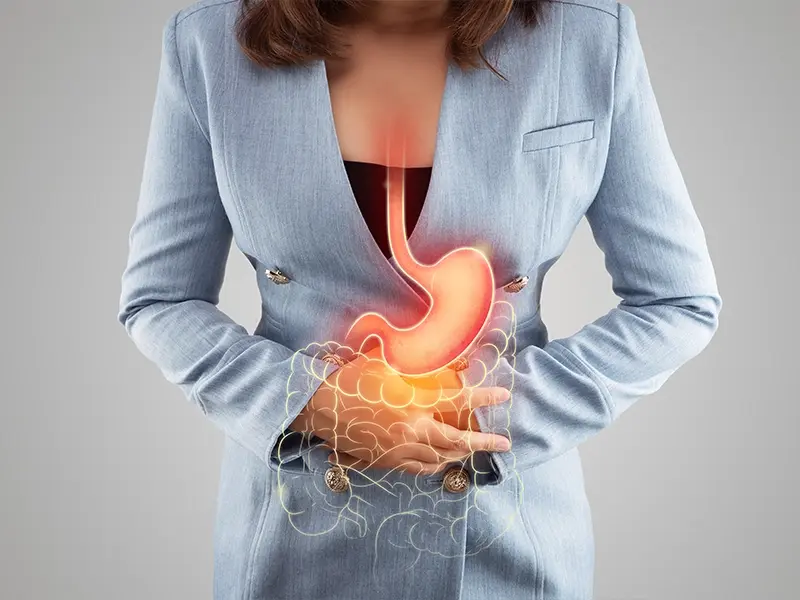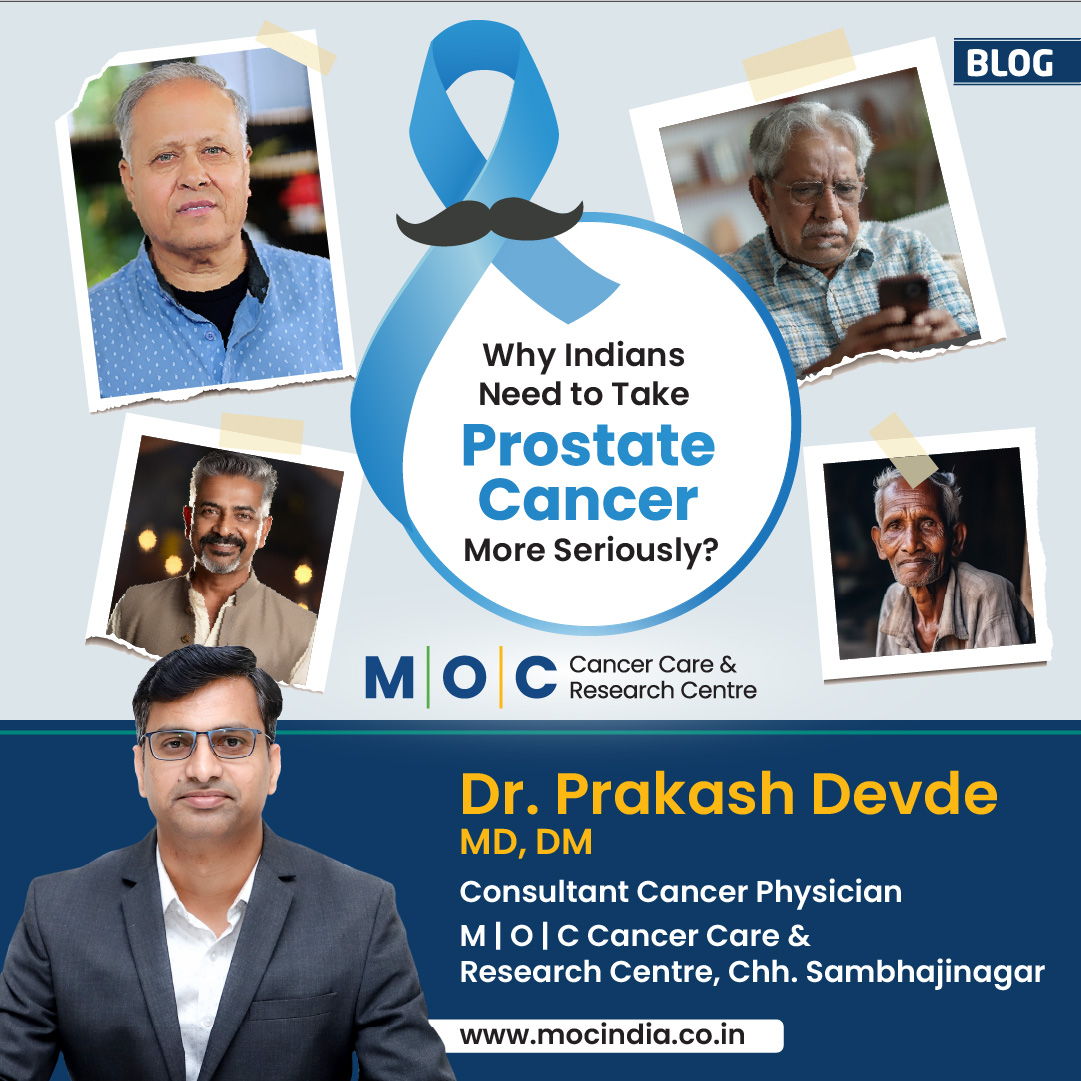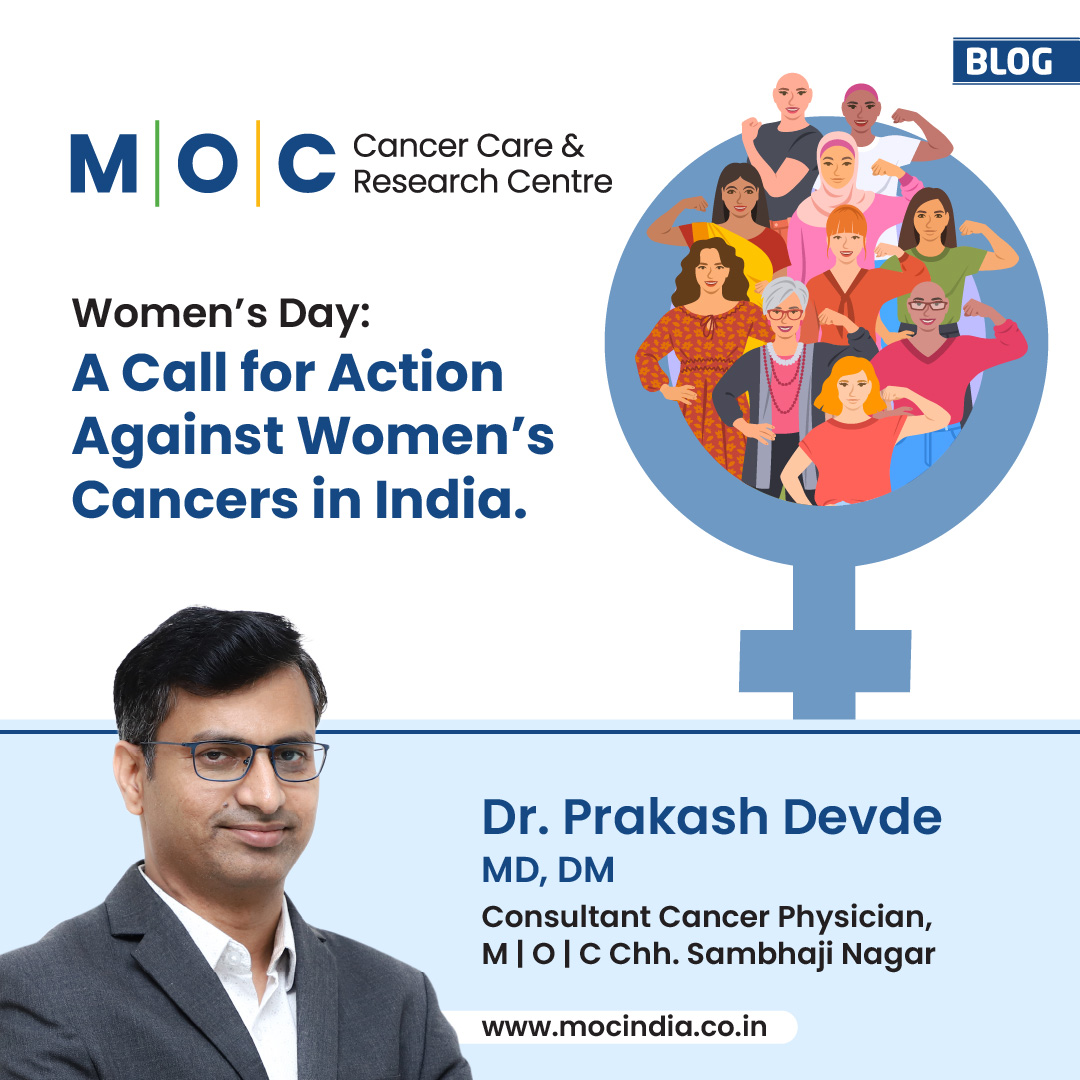Stomach Raises an Alarm, Attentively Address it!



Colorectal cancer (CRC) 3rd most common cancer worldwide after breast cancer and lung cancer. It is 3rd most commonly diagnosed cancer in males and the 2nd in females, with more than 1.4 million new cancer cases every year.
The geographical distribution patterns show that the incidence of CRC in India is subjacent as compared to rest of the world and it ranks as 7th most common cancer in India and 4th most common cancer in males. However, the absolute number of cases are very high in view of mountainous Indian population, also interestingly the incidence of CRC is very high in the younger population (<40>
Five-year (long term) survival of colorectal cancer in India is one of the lowest in the world at less than 40%. This may be a reflection of, late-stage at presentation, lack of awareness in patients about the symptoms and inadequate resources to deal with this disease in many parts of the country, especially semi-urban and rural areas.
Colorectal cancers can have a genetic predisposition, 3-4 % of all CRC have heredity to blame, rest can be associated with various other factors like diet, inactive lifestyle, smoking, alcohol intake, increasing age (>45yrs), obesity, diabetes. Consumption of red meat cooked at very high temperatures is emerging as a very common cause while a diet rich in high fibers, fruits and vegetables may prove to be protective for CRC.
The most common symptoms of colorectal cancer could be abdominal discomfort and altered bowel habits (constipation or diarrhoea) which unfortunately most of us tend to ignore. Over the counter medicines and inadequate community-level medical services add to the delay in diagnosis. These factors lead to diagnosis of CRC at advanced and incurable stage. Alarming symptoms in the advanced stage could include excessive bleeding in stool, loss of weight and loss of appetite, cough and haemoptysis and jaundice.
Awareness about the risk factors and symptoms and the need to seek early medical help would drastically increase diagnosis of early-stage disease which may be curable.
Once a patient seeks a Medical Oncologist and is suspected of having CRC, they have to be investigated thoroughly, including colonoscopies, CT scans or MRI scans, biopsy, occasionally PET-CT scans, tumor markers in the blood and routine blood tests and based on these results the diagnosis is confirmed and further treatment plans are made.
Treatment options in CRC consist of surgery and chemotherapy. Traditionally advanced stage at presentation was a death knell but now with recent advances in surgical techniques and with the introduction of modern targeted therapies, even advanced stage CRC can be curable if treated with experts in the field.
Dr. Udip Maheshwari
MBBS, MD (Medicine), DNB (Medical Oncology)
Medical Oncologist & Hemato-Oncologist
Latest Blogs
-
![Why Indians Need to Take Prostate Cancer More Seriously? An Oncologist's Opinion]()

- 20th Mar, 2025
- Why Indians Need to Take Prostate Cancer More Seriously? An Oncologist's Opinion
-
![Women’s Day: A Call for Action Against Women’s Cancers in India.]()

- 10th Mar, 2025
- Women’s Day: A Call for Action Against Women’s Cancers in India.
-
![A Unique Perspective on Women and Cancer- A Food for Thought]()
.jpg)
- 3rd Mar, 2025
- A Unique Perspective on Women and Cancer- A Food for Thought
-
![Bridging Hope and Equity for Young Warriors this International Childhood Cancer Day]()
.jpg)
- 18th Feb, 2025
- Bridging Hope and Equity for Young Warriors this International Childhood Cancer Day
-
![World Cancer Day 2025: United by Unique, Empowered by Hope.]()

- 5th Feb, 2025
- World Cancer Day 2025: United by Unique, Empowered by Hope.
-
![Striving Towards People-Centred Cancer Care]()

- 3rd Feb, 2025
- Striving Towards People-Centred Cancer Care
Book Your Appointment








